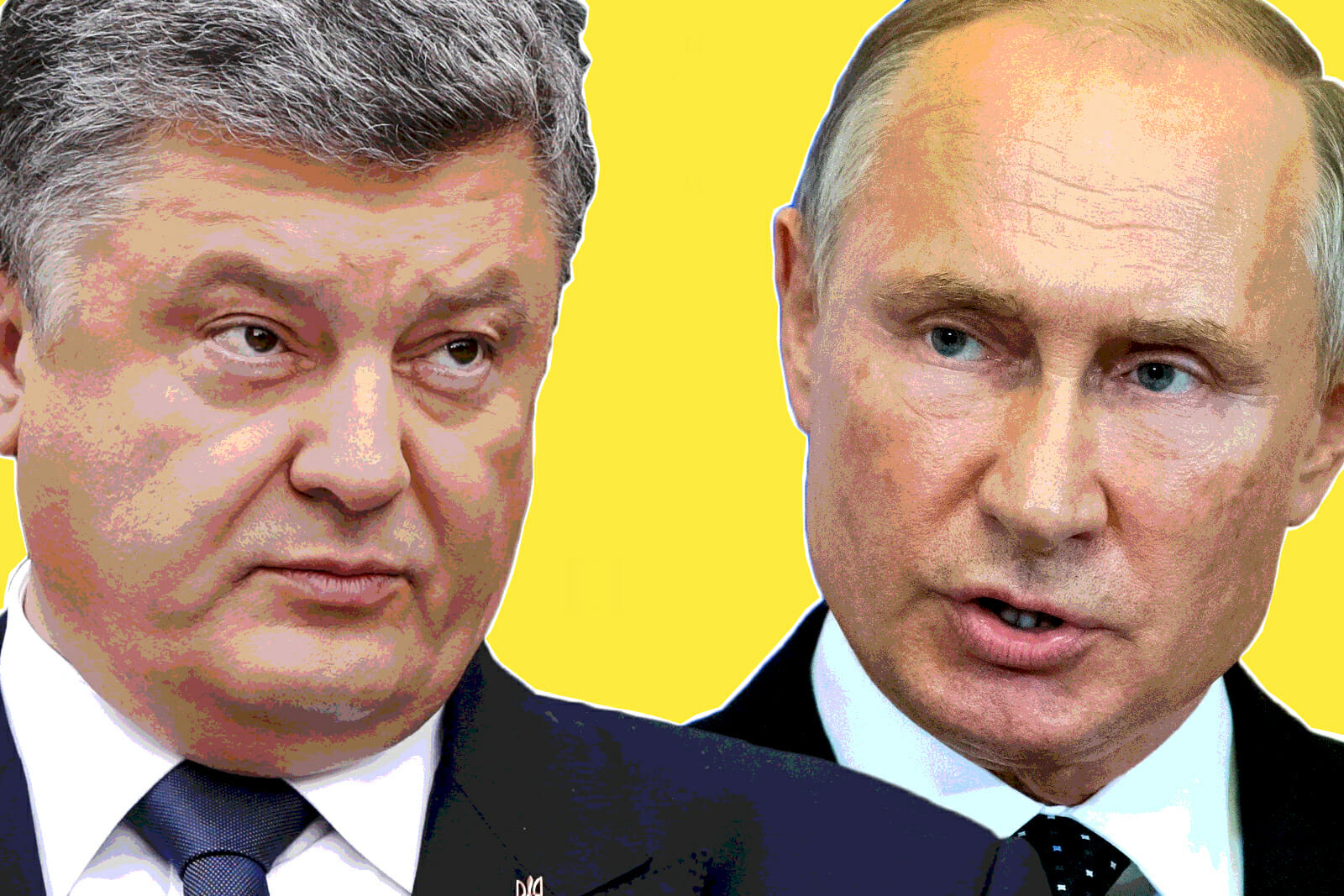
Journalism is More Dangerous, and More Under Threat, Than at Any Point in the Last Decade
Relations between Kiev and Moscow, already at an all-time low, threaten to plummet further still, this time over the rights of journalists in Ukraine.
Ukraine’s pro-Western government is wary of Russian media outlets, accusing Moscow of distributing disinformation aimed at sowing tension and destabilizing the country.
The U.S. State Department has said that Washington shares Ukraine’s concern about Russian propaganda but has stressed that Ukraine must ensure it abides by the law, including international human rights law.
The issue of freedom of speech and rights of journalists in Ukraine was the subject of a conference in Brussels on 10 December – International Human Rights Day – at which Andrei Domansky, a prominent Ukrainian lawyer, gave examples of alleged human rights violations.
The hearing was particularly timely as it comes a few days after a report by the human rights organization Article 19 said journalism is more dangerous, and more under threat, than at any point in the last decade. The rise of authoritarian governments have redoubled pressures on reporters globally said the group which found that a further 326 journalists were imprisoned for their work during 2017, a substantial rise on 2016.
Donald Trump has made a habit of demonizing reporters as “nasty” and “terrible” and over 30 journalists, including Jamal Khashoggi, have been murdered so far this year.
Domansky, who also hosts a top rated TV and radio show in Ukraine, represents a number of journalists in Ukraine who have been detained or harassed for “doing nothing more” than carrying out their professional duty. He’s logged 200 such cases, 90 of them involving violence being used against journalists.
These include journalists who might be regarded as “pro-Russian” and “pro-Ukraine” and all others in between.
His concerns are shared by the Organization for Security and Co-operation in Europe (OSCE), the world’s largest security-oriented intergovernmental organization. The Committee to Protect Journalists (CPJ) and Human Rights Watch have also condemned the alleged violations while the European Court of Human Rights has urged Ukraine to “respect its international commitments” on the issue of press freedom.
A recent report by the respected Freedom House think tank said that while Ukraine’s media environment had improved several challenges remain, including “undue political interference with content as well as violence, harassment and other abuse of journalists.”
The OSCE’s representative on freedom of the media, former French Socialist MEP Harlem Desir, has called on the Ukrainian authorities to “refrain from imposing unnecessary limitations on the work of foreign journalists, which affects the free flow of information and freedom of the media.”
Desir, who served as an MEP from 1999 to 2014, said, “Journalists have the right to express dissenting views and to report on issues that could be considered controversial, sensitive or offensive without any fear of retaliation.”
Desir wants the Ukrainian authorities to expedite Vyshinsky’s investigation and to release the journalist.
Speaking at the Brussels conference, Domansky, who lectures on journalists’ rights, cited several cases of alleged harassment, including against the staff of the strana.ua political news portal. He said that because the publication is “under constant attack” the editor Igor Guzhva has sought political asylum in Vienna. His correspondent in Kyiv, Kirili Malyshev, is “constantly harassed” by the authorities.
Another case highlighted is that of Danila Mokryk of the First TV Channel and threats against his life “as a result of his efforts to fight corruption.”
Domansky said, “Both of these journalists are loyal to the current Ukrainian system but for political opponents of the government the situation is even more troubling.”
A notable case is that of Kirill Vyshinsky who has been held in pre-trial detention since his arrest in Kyiv by the Security Service of Ukraine (SBU) in May. Vyshinsky is the bureau chief of the RIA Novosti Ukraine news agency and is held on charges of high treason pending further investigation. It has been suggested he cooperated with the Russian intelligence services, allegations he strenuously denies.
The SBU accuses RIA Novosti Ukraine of participating in a “hybrid information war” waged by Russia against Ukraine. A trial date of 28 December has been set.
This case is controversial because the accusations against Vyshinsky, who has dual Russian-Ukrainian citizenship, concern a total of 14 articles written by other journalists and with a range of different opinions, but published by him in 2014.
None of the authors have been charged and Vyshinsky’s detention has drawn angry criticism from Moscow and expressions of concern from media watchdogs.
The Russian Foreign Ministry calls Vyshinsky’s arrest an act of “blatant arbitrariness” and an attack on freedom of speech.
If found guilty, the journalist faces a maximum of 15 years’ imprisonment and confiscation of property.
The novel idea of an “exchange of pardons” is mooted by Domansky, involving Ukraine President Petro Poroshenko agreeing to pardon Vyshinsky with Russian President Vladimir Putin also pardoning Oleg Sentsov, a Ukrainian film director, writer and outspoken opponent of Russia’s annexation of Crimea.
On 10 May 2014, Sentsov was arrested in Simferopol, Crimea, on charges of plotting acts of terrorism against the Russian ‘de facto’ rule in Crimea.
Sentsov has won the EU’s prestige Sakharov Prize for Freedom of Thought but, as he is still detained in Russia, will be unable to collect the award at the European Parliament in Strasbourg later this week.
The EU could, it is argued, act as a go between and help facilitate such an exchange in order for Sentsov to travel to France to collect the award which carries a $50,000 cash prize.
Domanksy said, “It’s Christmas so what better time for such a gesture of seasonal goodwill?”
Domansky says this case and others raise important questions about the free expression of political views by journalists and how these are dealt with by governments.
He says that while every country has the right to protect its national interests, journalists also have the right to go about their professional activities without fear of harassment.
The rights of journalists are enshrined in law in Ukraine – the principle of freedom of speech in the country dates back to 1710 – but there is a “big difference” when it comes to implementation of this right, it is argued.
Tensions between Moscow and Kyiv have risen sharply since Russia seized Ukraine’s Crimea region in 2014 and threw its support behind separatists in eastern Ukraine, helping start a war that has killed more than 10,000 people.
Relations between the two deteriorated even more recently after Russia seized Ukrainian sailors and navy vessels in the Sea of Azov.
Ukraine’s pro-Western government is wary of Russian media outlets, accusing Moscow of distributing disinformation aimed at sowing tension and destabilizing the country. Kyiv has banned more than a dozen Russian television channels since 2014, accusing them of spreading propaganda.
